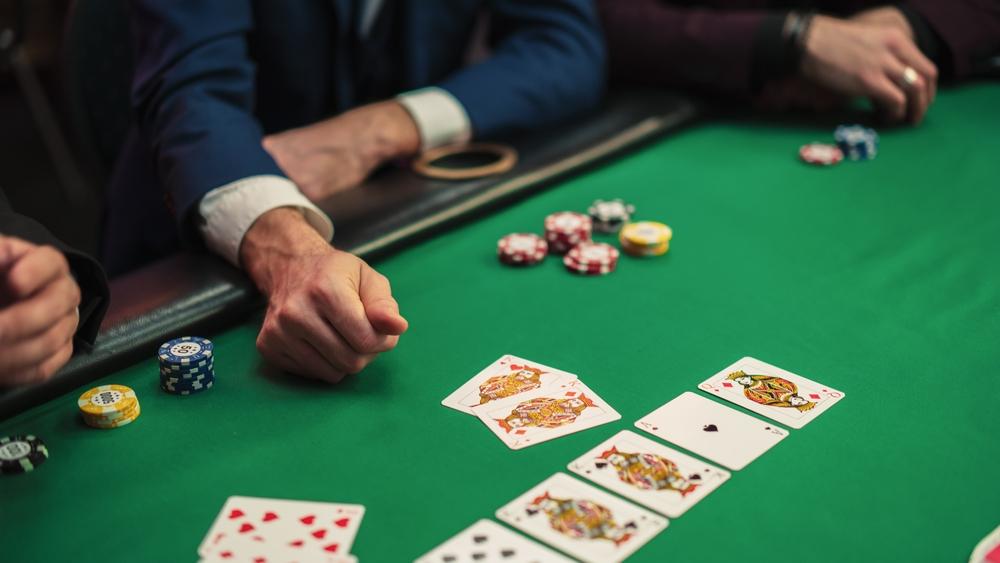
Reading your opponents is a skill that can drastically improve your poker game. While poker is a game of strategy and luck, being able to interpret your opponents’ behaviors, betting patterns, and tendencies gives you a significant advantage. In this article, we’ll explore ways to read your opponents effectively, covering the importance of observation, common tells, and how to use this information to make better decisions.
The Power of Observation
Successful poker players are keen observers. Watching your opponents closely from the moment they sit down at the table can reveal valuable information about their playing style and habits. By paying attention to their actions even when you’re not in the hand, you can start to piece together their tendencies, such as whether they play aggressively or prefer a more conservative approach.
When observing players, take note of how they handle different situations. For example, do they tend to fold quickly when faced with a large bet, or do they call frequently regardless of their hand? Recognizing these patterns will help you adjust your strategy accordingly. Observation is a skill that improves over time, so the more you practice it, the sharper and more effective your insights will become.
Identifying Common Poker Tells
Poker tells are physical or behavioral cues that can give away information about a player’s hand. While not every player will exhibit noticeable tells, those who do can inadvertently reveal whether they’re holding a strong or weak hand. Here are a few common tells to look out for:
-
Nervousness: Fidgeting, sweating, or shifting in their seat can indicate a weak hand or uncertainty. If a player appears tense and uncomfortable, they may be bluffing or hoping their hand holds up.
-
Sudden Silence: Some players become quiet when they have a strong hand. This shift in behavior can be a sign that they’re trying to avoid giving away their strength.
-
Rapid Betting: Quick bets, particularly large ones, may indicate confidence. Players who immediately bet big after the flop or turn may have a strong hand and want to maximize the pot.
-
Staring at the Board: A player who continually looks at the community cards may be waiting for a specific card to complete their hand, suggesting a draw or a weak hand hoping to improve.
While these tells can be insightful, it’s important to remember that they’re not foolproof. Some players may use reverse psychology, intentionally acting in ways that mislead you. However, with careful observation, you can start to discern genuine tells from intentional misdirection.
Adapting Your Strategy
Once you’ve gathered information about your opponents, it’s time to incorporate these insights into your strategy. For instance, if you notice that a player folds frequently under pressure, you can exploit this by bluffing more often against them. Conversely, if a player rarely folds, you’ll want to reserve your bluffs and focus on building strong hands when engaging with them.
Adapting to your opponents’ tendencies requires flexibility and quick thinking. If you find yourself up against a particularly aggressive player, consider adopting a more conservative approach until you have a strong hand. Against passive players, you may want to bet more aggressively to capitalize on their reluctance to call or raise. Adapting your strategy to fit the players around you is what will ultimately help you make more profitable decisions at the table.
The Art of Reading Without Being Read
While reading your opponents is essential, it’s equally important to avoid giving away information about your own hand. Maintaining a consistent demeanor and controlling your reactions can make it more difficult for opponents to read you. Practice keeping a steady betting rhythm and avoid sudden changes in behavior that might hint at your hand strength.
In conclusion, learning to read your opponents is a valuable skill that requires patience, observation, and experience. By focusing on common tells, observing patterns, and adjusting your strategy based on these insights, you can become a more formidable and unpredictable player. As you sharpen your ability to read others, you’ll find yourself making better decisions and gaining an edge at the poker table.